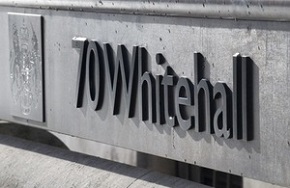SMEs and government contracts
On 10 April 2018, the government announced new measures to make it easier and fairer for small-and-medium-sized enterprises (SMEs) to bid on and win government contracts.
In the wake of Carilion's collapse, which highlighted the government's reliance on large suppliers to deliver contracts, the measures will exclude suppliers from major government procurement processes unless they have fair payment practices for their subcontractors. The proposals will also allow subcontractors greater access to buying authorities to report poor payment performance.
Suppliers will be required to advertise subcontracting opportunities through the Contracts Finder website, and provide data showing how businesses in their supply chain are benefiting from supplying central government.
Each member of the Cabinet has been instructed by the Prime Minister to nominate a Small Business Champion minister in their respective departments to ensure SMEs are given a fair opportunity.
Oliver Dowden, Minister for Implementation, said; "This government is listening to the business community and is committed to levelling the playing field for smaller suppliers to win work in the public sector. We have set a challenging aspiration that 33% of procurement spend should be with small businesses by 2022 - and are doing more than ever to break down barriers for smaller firms."
Federation of Small Businesses National Chairman, Mike Cherry, said; "Each year, the UK public sector spends over £200 billion on goods and services from third parties. As such a large and prominent customer in the economy, the government has a pivotal role to play in demonstrating what it is to be a good client. It is right then that the government today announces, as part of a new package to boost SME procurement, that it will clamp down on poor payment practice throughout public procurement supply chains. Companies who pay late should not be rewarded with public sector contracts. We need a robust public procurement process that holds larger companies to account for their payment practices."
Julia Evans, Chief Executive at BSRIA, said; “After recent collapses of corporate companies in the industry, it is clear that vigorous and transparent payment measures are needed coupled with a public procurement process that holds such larger companies to account for their payment practices. Government has set a challenging aspiration that 33 per cent of procurement spend should be with small businesses by 2022 – and it is doing work to ‘break down barriers for smaller firms’. Indeed: SMEs are the pillar of the UK economy and play a crucial role at all levels in the construction industry. It goes without saying that companies who pay late should not be rewarded with public sector contracts."
[edit] Related articles on Designing Buildings Wiki
Featured articles and news
The need for a National construction careers campaign
Highlighted by CIOB to cut unemployment, reduce skills gap and deliver on housing and infrastructure ambitions.
AI-Driven automation; reducing time, enhancing compliance
Sustainability; not just compliance but rethinking design, material selection, and the supply chains to support them.
Climate Resilience and Adaptation In the Built Environment
New CIOB Technical Information Sheet by Colin Booth, Professor of Smart and Sustainable Infrastructure.
Turning Enquiries into Profitable Construction Projects
Founder of Develop Coaching and author of Building Your Future; Greg Wilkes shares his insights.
IHBC Signpost: Poetry from concrete
Scotland’s fascinating historic concrete and brutalist architecture with the Engine Shed.
Demonstrating that apprenticeships work for business, people and Scotland’s economy.
Scottish parents prioritise construction and apprenticeships
CIOB data released for Scottish Apprenticeship Week shows construction as top potential career path.
From a Green to a White Paper and the proposal of a General Safety Requirement for construction products.
Creativity, conservation and craft at Barley Studio. Book review.
The challenge as PFI agreements come to an end
How construction deals with inherited assets built under long-term contracts.
Skills plan for engineering and building services
Comprehensive industry report highlights persistent skills challenges across the sector.
Choosing the right design team for a D&B Contract
An architect explains the nature and needs of working within this common procurement route.
Statement from the Interim Chief Construction Advisor
Thouria Istephan; Architect and inquiry panel member outlines ongoing work, priorities and next steps.
The 2025 draft NPPF in brief with indicative responses
Local verses National and suitable verses sustainable: Consultation open for just over one week.
Increased vigilance on VAT Domestic Reverse Charge
HMRC bearing down with increasing force on construction consultant says.
Call for greater recognition of professional standards
Chartered bodies representing more than 1.5 million individuals have written to the UK Government.






















